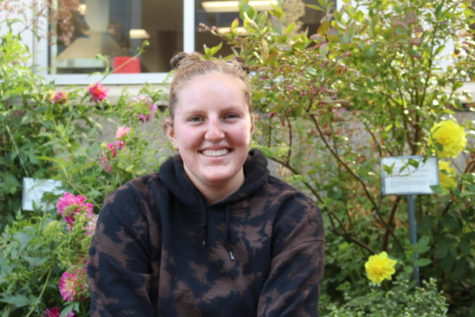Mental health: Sands and Smith share mental health resources
April 16, 2023
Registration, scheduling, writing recommendation letters, sending transcripts, leading meetings withstudents and families for special education services, and visiting classes are just a few of the many parts of a high school counselor’s job. Helping students with social and emotional concerns is also high on their list of priorities, especially as student mental health needs have grown exponentially since 2020.
Contrary to what students may believe, therapy is not a primary role of a school counselor or even one they are especially trained or licensed for.
Counselor Heather Smith says this is a common misconception held by students. “I think [students] assume ‘counselor’ means that we’re here to do counseling sessions like a therapist. I do have to explain that I’m not trained as a therapist,” she said.
Although the counselors are not licensed therapists, counselor Hannah Sands explains that they are happy to talk with students about coping skills and short-term solutions. “Figuring out where [mental health issue] stem from, when did you noticed it, if there were triggers or things that brought it on, are there coping strategies that we can work on, are there ones that you’re already using.”
If more support is needed than Sands can provide, she is able to make referrals to school therapists from Ryther and Community Health Services for on-campus support for students.
Having counselors able to talk with students about mental health concerns is an important resource, as one sophomore recognizes.“I appreciate that I’m able to talk to my counselor about both mental health support and academics because it has definitely got me through some very tough times,” they said.
Although having counselors is helpful, it can still be hard to balance life and school for students. “There have been plenty of times where I had to choose between my mental health and my academics because it is impossible to balance the two with the amount of time I have and the struggles I deal with mentally,” they said.
One way mental health support could improve is if counselors had smaller caseloads.“I would love us to have a smaller caseload so I’d have more time to spend with the one kid that day that’s needing support,” Smith said.
Sands feels the same way, noting that The American School Counseling Association recommends a caseload of 250:1 for optimal support. “As [caseloads] get larger and larger it can become more difficult to give strong individualized support to each and every student,” she said.
At the end of the day, the counselors are here to talk with students and find out how to best support them. Sands understands that it’s hard to reach out, but encourages students to do so. “I think it’s one of the hardest things you can do. And also one of the bravest.”



